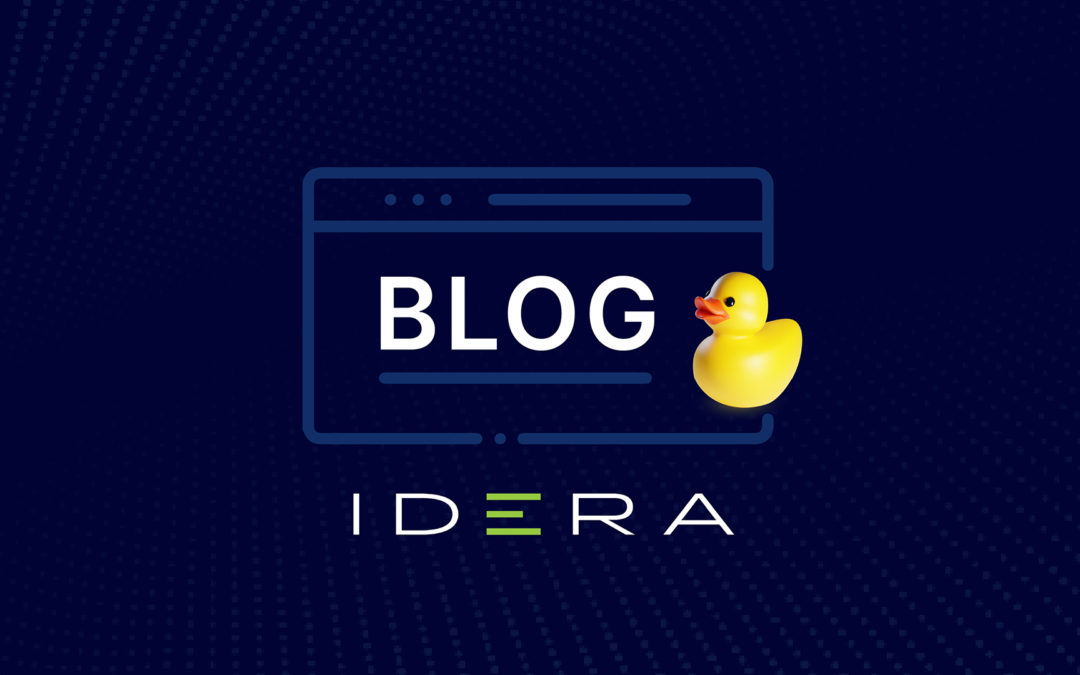SQL Under Siege: The Hidden Threats Lurking in Your Databases

Categories
- Free tools
- SQL Compliance Manager
- SQL Defrag Manager
- SQL Diagnostic Manager for MySQL
- SQL Diagnostic Manager for SQL Server
- SQL Diagnostic Manager Pro
- SQL Inventory Manager
- SQL Query Tuner for SQL Server
- SQL Safe Backup
- SQL Secure
- SQL Workload Analysis for SQL Server
- Uptime Infrastructure Monitor Formerly Uptime

SpeculationControl: Use PowerShell to Check for Risks
Checking Hardware Vulnerability to Spectre and Meltdown Microsoft released a module a couple of years ago (updated 3 weeks ago) that you can use to identify whether your hardware is vulnerable against Spectre and Meltdown threats. To try this, install the module from...

Creating ISO Files
PowerShell can turn regular folders into ISO files. ISO files are binary files that can be mounted and then behave like a read-only CD-ROM drive. Create Your Own ISO Files In the past, ISO files were commonly used to mount installation media. Today, you can easily...

Initialize Transactional Replication from your Backups
This blog provides guidance on the perceived limitations and restrictions on initializing transactional replication subscribers from backups. The Trouble with Snapshot Initialization This blog does not mean that initialization from a snapshot should not be used....

Automating Defender Antivirus (Part 2)
On Windows, PowerShell comes with cmdlets to automate the built-in antivirus engine “Defender”. In this second part, let’s take a look at how you find out the antivirus settings that are active on your machine: PS C:\> Get-MpPreference...

Manage data and result sets, and SQL queries with Aqua Data Studio
Aqua Data Studio improves access and consistency by accessing data sources from a single tool to minimize the learning curve and maximize the potential for collaboration. SQL queries Build SQL queries by dragging and dropping schemas, tables, views, and columns into...

Converting Wavelength to RGB
PowerShell is a generic script language so you can do all kinds of stuff with it. Below is a function that takes a light wavelength and converts it to the appropriate RGB color value: function Convert-WavelengthToRgb { # derived from...

Querying Advanced Printer Info via SNMP
Many network printer support SNMP to query information about the device, i.e. its serial number, the status and paper sizes of installed trays, or error information. SNMP Queries with PowerShell on Windows On Windows systems, the operating system already brings all...

SQL Diagnostic Manager 12.0 General Availability
We are pleased to announce the general availability of SQL Diagnostic Manager 12.0. Existing users may upgrade to this version through the Idera Customer Portal. New users may download the trial version from the Idera Website. What’s New in Diagnostic Manager 12.0?...

Determining Language Packs (Part 1)
Let’s assume you need to find the installed language packs for a Windows machine. In this three-part series, we use PowerShell’s features to tackle this problem. non-PowerShell command In part 1, we simply try and solve the issue by looking for a native non-PowerShell...

Running $PSScriptRoot in Selected Code
One of the big pitfalls in PowerShell code is the automatic variable $PSScriptRoot which always holds the path to the folder the current script is located. This however requires that (a) the current script is in fact already saved to file, and (b) you are executing...

Pasting Multiple Lines in PowerShell
Unexpected Behavior When Pasting Multiple Lines of PowerShell Code When you copy multiple lines of PowerShell code and paste them into a shell window, the result often is not what you expect. PowerShell starts executing the first line and won’t execute the pasted code...

Cleaning Up PowerShell Modules (Part 2)
In part 1 we looked at removing PowerShell modules that were originally installed via “Install-Module”. You can as well remove PowerShell modules manually if you no longer need them. After all, they are just folders. PowerShell Modules Here’s code that lists all...

Cleaning Up PowerShell Modules (Part 1)
There are plenty of scripts available that promise to read the original Windows 10 product key from the registry by converting a series of binary values. In the first part of this mini-series, we’ll check out where PowerShell keeps its modules, and what you can do to...

Quickly Finding Outdated PowerShell Modules
In the most simplistic case, you can check all your installed modules for updates with just a one-liner (remove -WhatIf to actually perform the update): PS C:\> Get-InstalledModule | Update-Module -WhatIf Get-InstalledModule lists all modules that were installed in...

Analyze blocking for SQL Server
Blocking is a normal activity that occurs in SQL Server and it does that to control data integrity and make sure only one resource can change a set of data at one time. The problem with blocking is if SQL Server blocked a session for a long period, this can cause...

Using Efficient Lists in PowerShell
By default, PowerShell uses simple “object arrays” when you define lists, when commands return more than one result, or when you otherwise need to store more than one thing in a variable. Default object arrays are OK but they cannot grow once you created them. When...

Managing File Shares on Windows with PowerShell (Part 1)
Managing Network Shares with the SMBShare Module Windows comes with a module called “SMBShare” which contains 42 cmdlets to manage network shares. This module works with Windows PowerShell and PowerShell 7: PS> Get-Command -Module SMBShare CommandType Name Version...

Out-GridView with Custom Columns
Out-GridView can be a universal dialog when you use the -OutputMode or -PassThru parameters. When you do, a grid view window displays additional buttons in its lower right corner so you can choose items and pass them on to additional cmdlets. This line could help...

Converting Ticks to DateTime
Occasionally, date and time information are stored as “Ticks” in the format of a so-called “FileTime”. Ticks are 100-nanosecond units since 01/01/1601. Active Directory internally uses this format, yet you can also find it elsewhere. Reading Windows Installation Time...

Top 5 Benefits of Universal Database GUI
Universal database graphical user interfaces (GUIs) are among the most productive tools available to database administrators (DBAs) and developers. A well-crafted universal database GUI can greatly assist team members to maintain and implement new features to their...